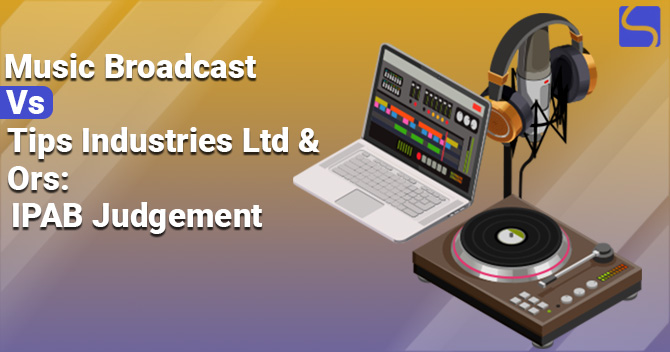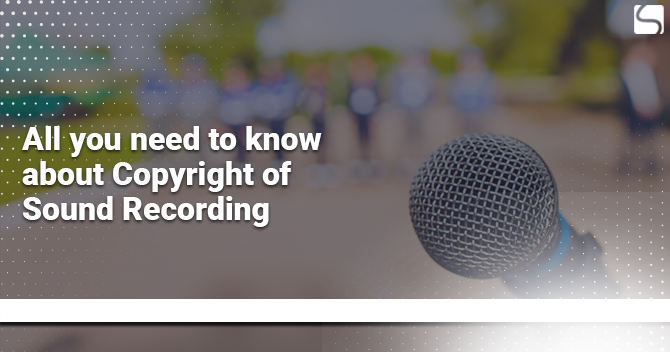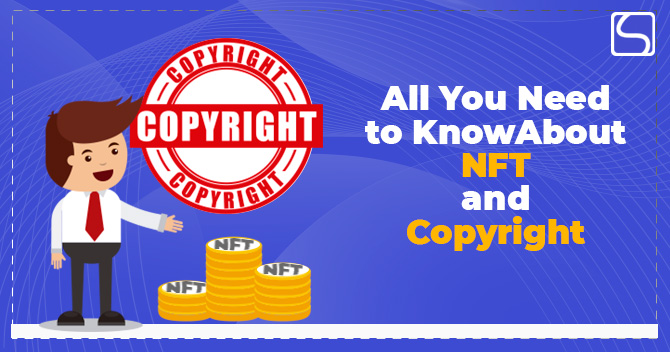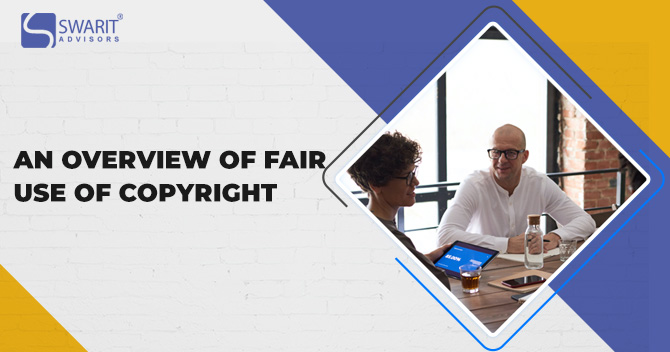Music Broadcast Vs Tips Industries Ltd & Ors: IPAB Judgement

Siddharth Verma | Updated: Nov 18, 2021 | Category: Copyright
The Intellectual property appellate board passed the landmark Judgment on Music broadcast vs Tips Industries Limited on the ground of violation of section 31-D of the copyright act, 1957 and rule 31 of the copyright act 2013. So, in this article, we will holistically analyze the case “MUSIC BROADCAST VS TIPS INDUSTRIES LTD & ORS” on the issue of transfer of royalty same incorporated under provision 31-D of the copyright act 1957. We shall also look into the insights of copyright act 1957 and Copyright rules 2013 in respect of the Judgment “MUSIC BROADCAST VS TIPS INDUSTRIES LTD & ORS”.
Table of Contents
Overview of Music Broadcast vs Tips Industries Ltd
What is the Significance of the Copyright Act 1957 in the Present case?
The Copyright Act 1957 focuses on protecting the Copyright the “exclusive rights” provided by the government same registered by the Original music and literary artists. Copyrights are the intellectual property rights that are protected by the Law of the land. The Copyright Act protects an artist’s registered Copyright during their lifetime as well as for 60 years after their death. Therefore, in the case “MUSIC BROADCAST VS TIPS INDUSTRIES LTD & ORS”. Copyright registration played a very significant role in respect of protecting the exclusive rights of the artists.
Relevancy of Section 31-D Under Copyrights Act, 1957 in Context of “Music Broadcast Vs Tips Industries Ltd & Ors”
As per the Copyright amendment act 2012, Section 31-D was incorporated under the copyright act 1957[1]. This section deals with the telecasting and performance rights of a Copyrighted literary work, music, or sound recording that has already been published. This section specifies that any broadcasting company, primarily radio and television, willing to reproduce, use, or transmit any former published literary work, musical piece, or sound recording must abide by this section of the Act. If the broadcasting company wants to communicate any artistic work, it has to serve notice to the creator and pay the royalty to the right holder that is fixed by the copyright board. The phrase ‘Copyright board’ has been replaced by the appellate board in the Finance Act of 2017.
Meaning and significance of rule 13 of copyright act 2013
Rule 31 of the copyright act 2013 states that the mode of determining royalties should be required to be paid by the broadcast companies.
Following are the steps that should be followed by the copyright board to decide the amount of royalty are as follows:
Step-1 As soon as the committee is formed, it will release a notice indicating its intention to fix royalty rates.
Step-2 The notification would be published in the Official Gazette of India as well as two additional national newspapers. In addition, the notice should be posted on the Copyright Board’s website.
Step-3 Within thirty days of the notice’s issuance, any broadcasting corporation or artist can make ideas for setting royalties rates. For different types of work, broadcasting firms and artists might charge varying rates.
Step -4 The board will take into account the suggestions made by such broadcasting corporations and musicians.
Step-5 After receiving the ideas, the board must set the royalty rates within two months. Different rates have to be set for different types of work.
Step-6 Under Section 31(D) of the Copyright Act, 1957, the Copyright Board must decide the royalties to be paid individually by the television and radio broadcasting companies to the Copyright owners.
When determining the royalties, the following factors must be taken into account:
- The broadcast time slot: varying fees must be considered for different time slots, including repeat broadcasts.
- Rates vary based on the different types of work.
- Rates vary depending on the nature of the task.
- The present royalty norms in several domains of activity.
- The terms and conditions of the Grant of Permission Agreement (GOPA), which is a contract between the Ministry of Information and Broadcasting and a broadcaster for the FM Radio Broadcasting Service.
- Other issues that the board deems important.
Facts And Analysis Of The Case “Music Broadcast Vs Tips Industries Ltd & Ors”
In the matter of “MUSIC BROADCAST VS TIPS INDUSTRIES LTD & ORS” around ten applications were filed by the Music Broadcast Limited under section-31 D of the copyright act 1957 and rule 31 of the Copyright rules 2013 requesting a statutory license and asking the Tribunal to set the rate of royalties to be paid to Copyright owners for the transmission of sound recordings to the public via radio broadcast. On September 22 2020, the IPAB published a notice to the public asking for recommendations on the applications.
On September 17, the Indian Performers Rights Society (hereafter referred to as IPRS) filed an application that contained a notice. The IPRS’s notification was founded on the concept that when songs are played on the radio, two sorts of royalties issues occur. The first is the right to exploit IPRS rights, and the second is the right to obtain royalties from music firms or their successors. The IPRS asserts that the music firms are its assignees since the owners of the Copyright of Sound Works, such as Sony Music India, TIPs Industries Ltd., and others, have assigned the Copyright of Sound Works to the IPRS. The IPRS also argued that, in addition to royalties for sound recordings aired on the radio, royalties for underlying music work such as lyrics and music composition should be determined. As a result, on September 23, a new application was filed. The applications for the license given by the Copyright Board to expire were also filed. The applicant was concerned about the consequences of an order of preservation of the status quo that was not obtained before September 30, 2020, the date on which licenses expire.
Final Judgment – Music Broadcast vs Tips Industries Ltd
In the matter of “MUSIC BROADCAST VS TIPS INDUSTRIES LTD & ORS“, it was upheld by the Intellectual property appellate tribunal board. “The lyricist, music composers, and publishers who are assigned to IPRS can claim royalties independently.” The aforesaid judgment was passed in light of the 2012 amendment to the copyright act 1957, and it is observed that From 2021 onwards, radio broadcasting businesses must pay a different royalty rate to Copyright owners of literary and musical works under the purview of sound recordings, according to the ruling. The court also ruled that the contracts between radio broadcasting businesses and music companies will stay in place until the license expires, i.e., as they were before the license expired. The IPAB also ruled that royalties for radio broadcasts of sound recordings shall be the same as those set by the IPAB in an order dated August 8, 2010.
Conclusion
In the matter of “MUSIC BROADCAST VS TIPS INDUSTRIES LTD & ORS“, the main issue of concern was royalties for sound recordings and underlying works of sound recordings be set different? So IPAB passed the judgment by stating, “The lyricist, music composers, and publishers who are assigned to IPRS can claim royalties independently,” so, therefore, IPAB granted permission to demand royalties for a specific occurrence.
Read our Article:A Complete Analysis of Software Copyright Infringement in India














